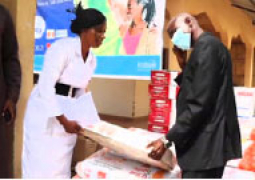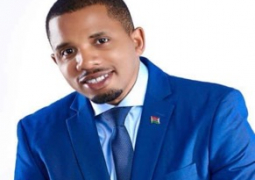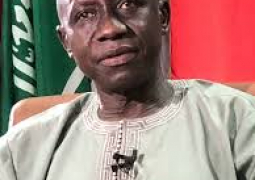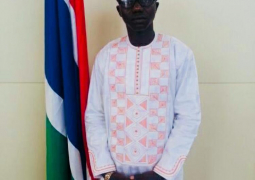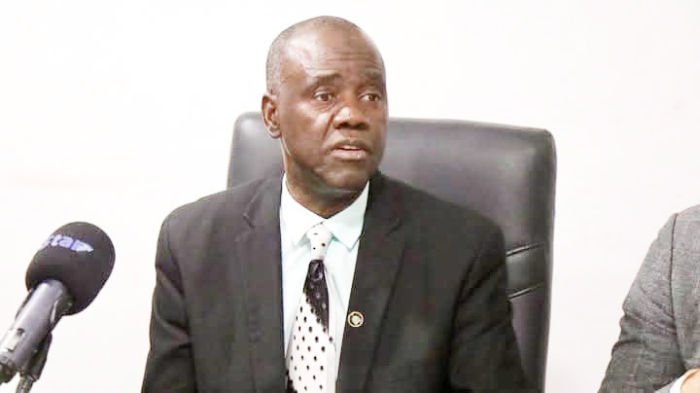
He made this disclosure during the commemoration of the International Day Against Drug Abuse and Illicit Drug Trafficking, commonly known as World Drug Day, held at the President’s International Award (PIA) Centre.
Speaking at the event, DG Ceesay expressed concern over the rising levels of drug use among Gambians, especially the youth, describing the trend as a major threat to national security and public health.
“It is unfortunate that the majority of individuals arrested for drug-related offences are Gambians. This poses a serious challenge to our society and calls for urgent action,” he stated.
Ceesay emphasised DLEAG’s unwavering commitment to combating drug abuse and illicit trafficking, noting that the problem continues to escalate with the rise of New Psychoactive Substances (NPS). He said these substances are particularly appealing to young people and are infiltrating the streets at an alarming rate.
The DG reported that in 2024, DLEAG apprehended 1,219 individuals in connection with 1,208 drug-related cases, with 1,014 of those arrested being Gambians and 205 foreign nationals. The foreign suspects included nationals from Senegal, Nigeria, Sierra Leone, Ghana, Morocco, Pakistan, the UK, the USA, and Portugal.
Seizures included large quantities of cannabis, cocaine, kush, hashish, and synthetic drugs. The statistics highlighted cannabis as the most widely used illicit drug, representing 54.7% of all seizures.
He gave a breakdown of major drug seizures in Gambia, saying Cannabis sativa: 1.9 tons, Cannabis plantation: 2.2 tons, Cocaine: 125 kg, Kush: 13.9 kg, MDMA (ecstasy) tablets: 104,936, Methamphetamine tablets: 18,937 Vapes: 630 unit, Tramadol, Clonazepam, Diazepam and other prescription drugs.
The DG said that interdiction efforts recorded a 42% increase in the second half of the year compared to the first, thanks to strategic reforms and operational restructuring within the Agency.
“We introduced structural reforms that made our presence felt in more areas, which quickly translated into significant drug busts. These reforms are paying off,” Ceesay added.
The Agency also ramped up its prosecution capacity. In 2024, DLEAG successfully prosecuted 207 drug cases - 77 in the first half of the year and 130 in the second half - marking a 92% increase in prosecution outcomes.
Ceesay clarified that while DLEAG leads interdiction and investigation, drug-related cases are adjudicated by the courts. The Agency, he said, has worked closely with the judiciary to accelerate case hearings and ensure justice is served in a timely manner.
Beyond arrests and prosecutions, DLEAG is expanding its outreach and prevention programs. Weekly radio talk shows, school sensitisations, and community engagement activities are being conducted nationwide to educate the public, particularly young people, about the dangers of drugs.
Ceesay also disclosed that a long-awaited treatment and rehabilitation center is under construction in Tranquil, West Coast Region, in partnership with ECOWAS. The project, which began in March 2025, is nearing completion and will be the country’s first official rehabilitation facility for drug users.
“This center is a major milestone. It will allow us to provide much-needed support to victims of drug abuse who require rehabilitation rather than incarceration,” he stated.
DG Ceesay commended the collaboration between DLEAG and other national security bodies including the Gambia Police Force, the Gambia Immigration Department, and the Armed Forces, among others. Their coordinated efforts, he said, are essential in the national drug control strategy.
Also speaking at the event, Dr Samba Faal, Chairman of the DLEAG Board of Governors, urged the public to play a more active role in addressing the country’s drug problem.
“We must all ask ourselves what role we’ve played in making our communities drug-free,” said Dr Faal. “The Agency cannot win this war alone. Every citizen must take responsibility.”
He emphasised that illicit drugs are destroying the potential of Gambian youth and contributing to a rise in drug-induced psychosis, violence, and other social ills.
Dr Faal called on parents, teachers, and community leaders to educate the youth and to report suspicious drug-related activities to authorities.
“To the young people of this country, I say: your future depends on the choices you make today. Stay away from drugs. They destroy lives,” he concluded.


